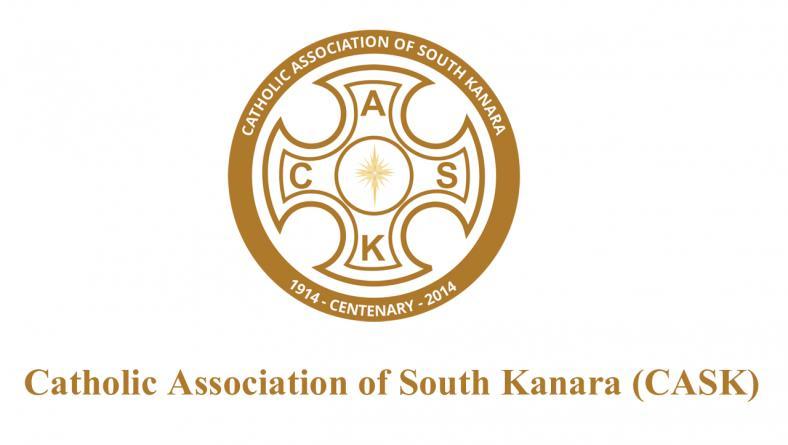Christians are on the threshold of Lent, a forty-day period of introspection, repentance, spiritual spring-cleaning and return to God, observed by them all over the world. It starts from Ash Wednesday (this year February 10) and ends with Easter Sunday.. Lent is observed as a time for fasting in commemoration of Christ’s fast of forty days in the wilderness prior to starting his public ministry of preaching and healing. The forty days of Lent are also a throw-back to Exodus of Old Testament, the period of forty years it took for Hebrews, the chosen people of God, to escape from the oppressive bondage of Egyptian kings, Pharaohs, to reach their promised land of milk and honey.
Ash Wednesday is marked by the imposing of ashes on the head of the faithful in the churches. While imposing ashes on the head, the priest used to says, “Remember, man, that thou art dust and unto dust thou shall return”. This is now replaced with the exhortation “Turn away from sin and be faithful to the Gospel (good news of the Bible )”. This is a shift from a threat of God’s punishment to the sinner, to have trust and return to the compassionate and merciful God.
During Lent, the trend and tenor of Church liturgy is in a subdued mode. The accent is on forgiving and reconciliation as reflected in the special reading of the Gospel at the holy mass on Sunday prior to AshWednesday (St. Luke-6: 27-38): Jesus said to his disciples, “I say to you that hear, love your enemies, do good to those who hate you, bless those who curse you, pray for those who abuse you. To him who strikes you on the cheek, offer the other also; and from him who takes away your cloak do not withhold your coat as well. Give to every one who begs from you; and of him who takes away your goods do not ask them again (back). And as you wish that men would do to you, do so to them. … Love your enemies, and do good, and lend, expecting nothing in return; and your reward will be great… Judge not, and you will not be judged; condemn not, and you will not be condemned; forgive, and you will be forgiven; give and it will be given to you;…For measure you give will be the measure you get back.”
Traditionally, the main aspect of observing Lent was fasting. During the initial centuries of Christianity, fasting during Lent was confined to a few days to a week. The Council of Nicaea in 325 AD mentioned the period as forty days. By the end of the 4th century, the forty-day fasting became common. Besides Christ’s forty-day fasting, in the Old Testament, prophets Moses and Elijah also had similar fasts. Initially, only one meal without fish and meat was allowed. In the 19th century the rules were relaxed to have fish and eggs.
Another aspect of Lenten devotion is the making the Way of the Cross involving 14 stations, recalling, and reflecting on, the journey of Jesus from the time he was caught, scourged, condemned to death, marched to Golgotha carrying the cross, crucified, died and entombed. This devotion stretches from ten minutes to 30 minutes and even three hours as is done on Good Friday – Three Hours Agony, from 12 noon – an annual feature at the Cathedral of Holy Name (Wodehouse Church) in downtown Mumbai.
For centuries the popular understanding of Lent centred on physical suffering. Vatican Council II (1962) shifted the emphasis to spiritual preparation for Easter and broadened the process to include other forms of penance and increased prayers and works of charity. Thus, three aspects of Lent – prayer, fasting and giving alms – are meant to prepare Christians to celebrate the resurrection of Christ on Easter Sunday.
Each Diocese (the administrative area under a Bishop) frames its own rules of fasting and abstinence (refraining from eating meat). The rules bind those above 18 and below 60 years. Ash Wednesday and Good Friday are days of fasting and abstinence. All the Fridays in Lent are days of abstinence. A dispensation is granted to members of the Armed Forces and those traveling by land, sea or air. Fasting allows one full meal and two lighter ones. Those who cannot fast can compensate by doing a number of alternate sacrifices and devotions. Some sacrifices include not viewing pictures and TV during Lent.
Ash Wednesday is not a day of obligation – it is not compulsory to attend Church service. But Christians all over crowd the churches on this day. Among the special prayers recited at church services on Ash Wednesday is: “In this holy season, help us to turn our minds and hearts back to you. Lead us into sincere repentance and renew our lives with your grace. Help us to remember that we are sinners, but even more, help us to remember your loving mercy. As we live through this Ash Wednesday may the cross of ashes that marks our forehead be a reminder to us and to those who meet (us) that we belong to your Son. May our worship, prayer and penitence this day be sustained throughout these forty days in Lent. Bring us refreshed and renewed to the celebration of Christ’s Resurrection at Easter”.
Unlike the proverbial calm before the storm, in the case of Ash Wednesday, there is carnal storm before the calm. In many countries the last day before Ash Wednesday – called Madri Gras, Shrove Tuesday and Carnival – has become a last fling before the penitence and solemnity of Lent. For centuries, it was customary to fast by abstaining from meat during Lent, which is why some people called it the festival of Carnival, which is Latin for “farewell to meat”. There is a strong Carnival tradition in Ispanic (Portugal, Spain) and Latin American countries. In India, Goa has a strong Carnival tradition. These celebrations start on the Sunday previous to Ash Wednesdayand end on its eve
There has been a strong opposition to Carnivals because of their commercialisation and vulgarisation. A few years ago, there were Church-supported demonstrations against Carnival in Panjim, Goa where floats led by King Momo take to the streets for three days. Now, official encouragement comes from the government in the name of tourist promotion. While many rush to Goa to join the revelers, TV channels, specially FTV, bring the carnivals -Rio carnival, for instance – to the drawing rooms. While the Goa carnival lasts three days, Rio carnival will dominate FTV transmission till Ash Wednesday and rebroadcast off and on throughout the year.
For Canara Christians, Ash Wednesday evokes sad memories. In the siege of Mangalore in 1794, Tippu Sultan vanquished the British. Tippu suspected the native Christian population of secretly aiding the British and a terrible persecution ensued. Having set guards over the villages in which they resided, Tippu’s soldiers seized in one night about 60,000 Christians and forcibly deported them to Mysore. They were rounded up for the captivity on Ash Wednesday on the basis of the ash cross on their foreheads. Their sufferings on the way were intense, and with many of them having died or killed on the way, only a portion reached Shrirangapatnam, where the men were circumcised and a number of the most able-bodied selected for service as soldiers. The remainder, with the women and children, were distributed throughout the villages of Mysore. They remained there till the British defeated Tippu in 1799. The number of those who returned from their 15-year captivity has been estimated at only 12,000.
By John B. Monteiro





